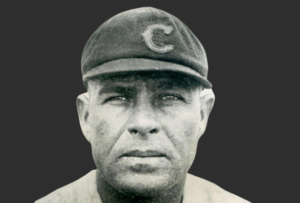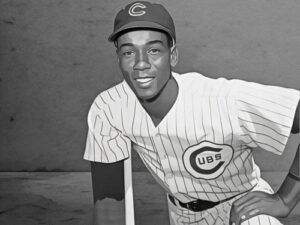The headline is click bait. Of course defensive matters in baseball.
Doesn’t it?
I’m writing this article because I noticed strange things while browsing Baseball-Reference.com recently.
From 1996 to 2003, the New York Yankees won six pennants and four World Series titles in eight years. That constitutes a baseball dynasty. Yet, the 1996-2003 Yankees fielded some of the worst defensive players in baseball history at critical positions, according to the most advanced statistical measurements.
Three players: catcher Jorge Posada, shortstop Derek Jeter, and center fielder Bernie Williams, rate as very poor to terrible according to Runs from Fielding (Rfield), a statistic by Baseball-Reference and Sean Smith, their numbers guru. Rfield is supposed to measure how many runs above an average player that a fielder is. The stat measures the fielder’s range, arm, ability to turn a double, surehandedness, and so on. Everything that you’d want to know about a defensive player.
For his career, Posada rated about 60 runs below an average catcher. He was -12 during the 1996-2003 era when he was crouching behind the dish for the Yankees. Posada’s -60 career Rfield ranks second to last among all catchers in baseball history. The only catcher with a worse rating is Mike Piazza.
Jeter’s defense has long been the topic of debate. His legendary status in New York blinded many fans to his poor range and anemic throwing arm. The perennial All-Star was also sloth-like in turning double plays at second base. His career Rfield is a whopping -246, the lowest mark of any player at any defensive position in the history of baseball. It’s safe to say that Jeter should have been moved to a less demanding position in mid-career, but neither he nor the front office would stand for that. Even when the Bombers acquired the vastly superior Alex Rodriguez in 2004, they kept Jeter at short. Jump-hop throws, headlong dives into the stands, and a famous playoff shuffle-pass relay kept The Captain in his slot at short, even if he was a terrible defender.
Playing behind Jeter for most of his career, Bernie Williams was nearly as popular as his teammate, and a clutch postseason player. But according to the metrics, Bernie was a statue in center field. Other than the 1995 season, his defensive stats are abysmal. Rfield has Williams at -139, which puts him last among center fielders in baseball history. Everyone acknowledged that Bernie’s wing was weak, but given these numbers, it seems his range and hands were far below standards as well.
There’s an old saying that goes “You win up the middle.” Defense up the middle at catcher, shortstop, second base*, and center field is supposed to be the foundation of a successful team. The Yankees had Posada, Jeter, and Williams, three All-Stars, from 1995 to 2006, and they won a lot of games with the famed trio in the pinstripes. Each of them were great at the plate and proved their worth time and time again by performing brilliantly in the postseason. But according to the best defensive stats we currently have, those three rate among the worst fielders of all time at each of their positions.
What gives?
Can we trust Rfield and other “sophisticated” defensive statistics? Were Jeter, Posada, and Williams better than these measurements show? Or were the Yankees of that era so good that they overcame poor defense at key positions? Was there a bias against the Yankee defense in those years, some factor that caused the statistics to undervalue them? Or were the Yankees playing with a handicap that still didn’t stop them from winning four rings in five years?
Rfield feeds into Wins Above Replacement (WAR), the one stat to have emerged as the “ultimate number” for rating a player. Is Rfield accurate? Does it align well with winning? Is WAR a sham?
Can we trust the defensive metrics that are currently being used to evaluate baseball players? Or, if these numbers are correct, perhaps defense isn’t as important as we think it is?
– – – – – – – – –






